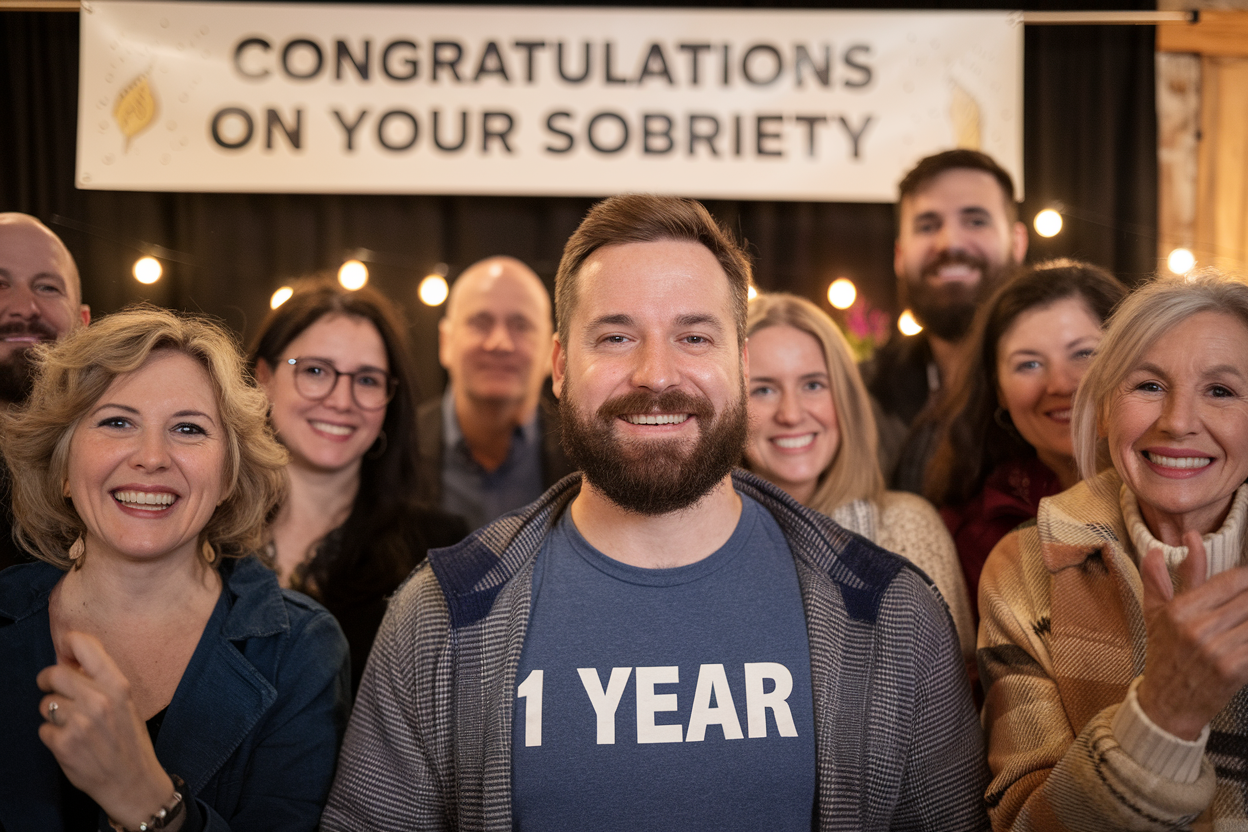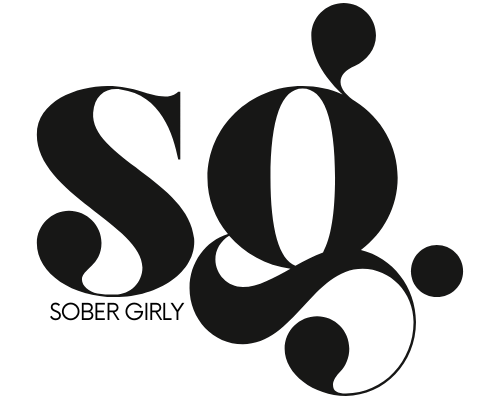How to Start a Sober Lifestyle: A Beginner’s Roadmap to Alcohol-Free Living

Feeling stuck in a cycle of alcohol dependence? Choosing sobriety can be tough, but it’s worth it. Starting an alcohol-free journey can lead to better health, clearer thinking, and stronger bonds. I’ve made this guide to help you on your sobriety path with easy steps and support.
Let’s explore how to start a sober lifestyle together. We’ll turn challenges into wins for a happier, healthier you.
Key Takeaways
- Sobriety improves mental well-being and overall health
- Setting achievable milestones aids in maintaining sobriety
- Creating a supportive environment is crucial for success
- Engaging in sober communities provides valuable support
- Finding joyful alternatives to alcohol enhances the journey
- Developing coping mechanisms helps manage triggers
- Celebrating milestones reinforces commitment to sobriety
Identifying Your Reasons for Sobriety
Starting a sober lifestyle begins with understanding your reasons for sobriety. These motivations are the foundation for your alcohol-free goals. They help you stay committed during tough times. Exploring personal, health, and social reasons can show why sobriety matters to you.
Personal Motivations
My journey to sobriety started with deep personal reflection. I wanted to be more present for my family and improve my mental well-being. Setting alcohol-free goals helped me focus on self-improvement and pursue neglected passions. Identifying these personal motivations gave me a strong sense of purpose.
Health Benefits
The health benefits of sobriety are many and compelling. Quitting alcohol can improve physical health and mental clarity. It also reduces the risk of chronic diseases. This knowledge motivated me to prioritize my well-being.
Social Reasons
Social factors were key in my decision to embrace sobriety. I wanted to strengthen my relationships and reduce alcohol-related social issues. By choosing sobriety, I found new ways to connect with others and build meaningful connections. These social reasons helped me create a supportive network and foster healthier interactions.
Understanding your unique reasons for sobriety is essential. It provides a solid foundation for your journey. Remember, it’s normal to feel uncertain at first. But identifying your motivations will guide you towards a fulfilling sober life.
Setting Clear and Achievable Goals
When I started my sobriety journey, I learned the value of clear goals. It’s not just about quitting alcohol. It’s about planning a new life. Only 8% of people keep their New Year’s resolutions.
So, I set SMART goals for sobriety. This made success more likely.
Breaking Down Your Journey into Milestones
I made my sobriety goals smaller to feel less overwhelmed. Instead of aiming for forever sobriety, I started with a 30-day goal. Experts say to set short-term goals, especially in early sobriety.
| Milestone | Goal | Reward |
|---|---|---|
| 30 days | Complete a month alcohol-free | New workout gear |
| 90 days | Establish a regular exercise routine | Weekend getaway |
| 6 months | Join a support group | Concert tickets |
| 1 year | Maintain sobriety and new habits | Spa day |
Reflecting on Your Desired Outcomes
Thinking about what I wanted helped me stay motivated. I wanted better health, improved relationships, and happiness. These goals guided me through hard times.
The Substance Abuse and Mental Health Services Administration says a personalized recovery plan is key. It should have goals you can reach.
Creating a Supportive Environment
Building a sober support system is key for an alcohol-free life. It’s not just about avoiding booze. It’s about changing my whole social world to fit my new choices.
Altering Your Social Life
I’ve changed my social circle a lot. No more pub nights for me. Now, I join hiking clubs or go to events without alcohol. This has brought new friends and experiences into my life.
Communicating Your Decision to Loved Ones
Talking to friends and family about being sober was tough at first. But, I’ve found lots of support. Being open has made my relationships stronger and helped others understand me.
Finding Sober Communities and Support Groups
Meeting others who get it has been priceless. I’ve joined online forums and groups like Alcoholics Anonymous and SMART Recovery. These places offer support and tips for staying sober.
| Support Group | Focus | Meeting Format |
|---|---|---|
| Alcoholics Anonymous | Alcohol addiction | In-person and virtual |
| SMART Recovery | All addictions | In-person and online |
| Celebrate Recovery | Faith-based addiction support | In-person gatherings |
Creating a sober space at home is crucial. I’ve removed alcohol and started new routines. Daily thanks and exercise are now part of my life without booze.
Discovering Fulfilling Alternatives to Drinking
I’ve found that exploring alcohol alternatives and sober activities is key to maintaining a fulfilling, alcohol-free lifestyle. Let’s dive into some exciting options that can replace drinking and add joy to your life.
Exploring Non-Alcoholic Beverages
The world of non-alcoholic drinks has exploded in recent years. I’ve discovered a whole range of sophisticated and tasty options that make me feel like I’m not missing out. From craft sodas with unique flavors to non-alcoholic versions of classic cocktails, there’s something for every taste.
| Beverage Type | Popular Options | Flavor Profile |
|---|---|---|
| Mocktails | Virgin Margarita, Nojito | Refreshing, Citrusy |
| Non-Alcoholic Beer | Athletic Brewing, Heineken 0.0 | Hoppy, Crisp |
| Craft Sodas | Hibiscus Soda, Ginger Beer | Complex, Botanical |
Pursuing New Hobbies and Interests
Engaging in sober activities has opened up a world of possibilities for me. I’ve taken up painting, which allows me to express myself creatively. Joining a local sports team has improved my physical health and helped me build new friendships.
Volunteering at a local shelter has given me a sense of purpose and connection to my community. These new hobbies not only fill the time I used to spend drinking but also bring a sense of accomplishment and joy to my life.
- Take up a creative hobby like painting or photography
- Join a sports team or fitness class
- Volunteer for a cause you care about
- Learn a new skill or language
- Start a book club or join a discussion group
By exploring these alcohol alternatives and sober activities, I’ve discovered a richer, more fulfilling lifestyle that I never imagined possible when I was drinking.
Managing Triggers and Cravings
Starting a sober lifestyle means facing alcohol triggers and cravings. It’s key to recognize these challenges for long-term success. Let’s look at how to spot triggers and find healthy ways to cope.
Identifying Your Triggers
Triggers can be sneaky. They’re cues that make you want to drink. I’ve found that triggers come in different forms:
- External: Being around alcohol or certain people
- Internal: Feeling stressed or anxious
- Environmental: Visiting places linked to past drinking
- Emotional: Experiencing anger, sadness, or loneliness
Developing Healthy Coping Mechanisms
When cravings hit, they can be intense. But I’ve found some effective ways to cope:
- Journaling: Write down thoughts and feelings
- Mindfulness: Practice being present in the moment
- Setting boundaries: Learn to say no to risky situations
- Seeking support: Reach out to friends or support groups
- Self-care: Engage in activities that promote well-being
Remember, cravings are temporary. With time and practice, managing alcohol triggers gets easier. By identifying your personal triggers and developing solid coping strategies, you’re setting yourself up for success in your sober journey.
Celebrating Progress and Milestones

Celebrating sobriety milestones is key to staying motivated. From my first 24 hours to years, each milestone is a big win. These achievements show how far I’ve come and keep me committed.
To celebrate, I’ve tried different things:
- Dinner with supportive friends
- Movie outings
- Hiking adventures
- Volunteering for causes I care about
Reflecting on my journey is important. I take time to see the good changes and challenges I’ve faced. This boosts my self-worth and reminds me of my choice.
Support from others is huge in celebrating milestones. My accountability partner and support group make these moments special. They get what I’m going through.
Looking ahead, I’m excited for more milestones. These celebrations help me stay on track. They guide me to a happier, healthier life without alcohol.
Practicing Self-Compassion and Forgiveness
Being kind to yourself is key in sobriety. It’s not about being perfect, but about moving forward. When you make a mistake, remember it’s part of the journey.
Acknowledging Your Efforts
Small victories are worth celebrating. Every sober day is a win. I keep track of my progress with journaling.
There are 30 prompts online for self-reflection. I also say 10 positive affirmations every day. This boosts my confidence.
Dealing with Setbacks and Relapses
Dealing with relapses is hard, but doable. See them as chances to learn. If you slip up, talk to your support group.
They’ll remind you that recovery is a long journey. Mindfulness through meditation and yoga helps me stay focused.
| Practice | Benefit |
|---|---|
| Journaling | Promotes self-reflection |
| Meditation | Cultivates mindfulness |
| Gratitude exercises | Enhances positive thinking |
| Support group meetings | Provides connection and understanding |
| Outdoor activities | Boosts mood and self-care |
Self-compassion is not weakness. It’s a strong tool for healing and growth in recovery.
Educating Yourself on the Effects of Alcohol
Learning about alcohol’s effects is key for staying sober. Did you know over 14 million adults in the U.S. struggle with alcohol use disorder? This shows how vital it is to understand drinking’s impact.
Discovering the benefits of sobriety opened my eyes. I learned withdrawal symptoms peak around 72 hours after drinking. These can include anxiety, depression, headaches, and insomnia. This knowledge helped me get ready for sobriety’s early days.
Regular exercise can lower the risk of early death. This fact pushed me to swap drinking for healthier habits. I also found out that 77% of AA members feel a stronger sense of belonging. This made me want to join a support group.
Learning about alcohol’s long-term effects made me more committed to staying sober. I found out lifestyle changes can lower the risk of chronic illnesses. This keeps me focused on the good things about being sober.
- Alcohol addiction is a widespread issue
- Withdrawal symptoms can be intense but manageable
- Exercise and support groups play crucial roles in recovery
- Sobriety offers numerous health benefits
By learning, I’ve found powerful ways to stay sober and improve my health.
Seeking Professional Help When Needed
Starting a sober lifestyle can be tough, but you don’t have to face it alone. I’ve learned that getting professional help for sobriety can really help. Let’s look at some options that have helped many people stay sober.
Therapists and Counselors
Working with a therapist or counselor who knows about addiction has been very helpful for me. They use special criteria to make treatment plans just for you. They’ve helped me find my triggers, learn how to cope, and deal with issues that led to my drinking.
Support Groups and Programs
Joining support groups has changed my recovery for the better. Groups like Alcoholics Anonymous (AA) and SMART Recovery offer a strong community. I’ve met others who are going through the same thing, which makes me feel less alone.
Online recovery communities and forums give me support anytime I need it. These resources, along with in-person meetings, have been key in keeping me sober and reaching my recovery goals.
Remember, asking for help is a sign of strength. Whether it’s therapy, support groups, or both, getting professional help can greatly improve your chances of living without alcohol.
How to Start Sober Lifestyle: Practical Tips and Strategies
Starting a sober lifestyle can be tough, but it’s doable with the right tips. Here are some practical tips to help you stay sober.
Replacing Old Habits with New Routines
One great way to stay sober is to swap old habits for new ones. Exercise is a top choice. It makes you feel good by releasing happy chemicals in your brain.
Volunteering is another excellent option. It helps you meet new people and find a sense of purpose.
Staying Accountable and Tracking Progress
It’s important to keep track of your progress. I use apps on my phone to help me stay on track. They count my sober days and help me deal with cravings.
Going to support group meetings is also key. These meetings are short, lasting 15 to 30 minutes. They help you stay focused on your goal.
| Strategy | Benefit |
|---|---|
| Exercise | Releases endorphins, improves mood |
| Volunteering | Creates new friendships, provides purpose |
| Support group meetings | Offers accountability, shared experiences |
| Smartphone apps | Tracks sober days, manages cravings |
Maintaining Motivation and Inspiration

Keeping motivated is crucial for staying sober. I write in a gratitude journal every day. It reminds me of the good things in life.
Remember, recovery is a long journey. Celebrate every small victory. It helps keep you going.
Living sober isn’t always simple, but these tips can help. Stay strong, ask for help when you need it, and know you’re not alone.
The Benefits of an Alcohol-Free Life
Choosing to live without alcohol has brought many good changes. It’s not just about avoiding hangovers. This choice can change many parts of your life.
Improved Health and Well-Being
Since I stopped drinking, my health has gotten much better. I sleep better and have more energy. I’ve lost weight and my immune system is stronger.
Stronger Relationships and Social Connections
Living without alcohol has made my relationships better. My talks with others are more real and deep. In fact, studies say over 90% of relationships get better without alcohol.
I’ve also found new friends who like the same things as me. We support each other.
Greater Personal Satisfaction and Fulfillment
Being sober has boosted my self-confidence. I’m more present and get things done. I’ve saved money and tried new things.
This change has also made me a good example for others. It helps stop alcohol use in families.
Living without alcohol is really changing my life. It’s better for my health, relationships, and personal growth. If you’re thinking about it, the good things you’ll see are worth it.
Conclusion
Starting a sober lifestyle is a big change that can really help you grow. It’s not just about not drinking. You can get healthier, build stronger relationships, and find new meaning in life.
This guide has shown how important it is to have goals, a supportive circle, and ways to deal with stress. These steps help you live sober well. Joining groups like AA or NA can give you great support and help you stay on track.
It’s okay to face tough times, but don’t forget to be kind to yourself. Try new things, stick to routines, and take care of yourself. Every step towards a life without alcohol is a step towards a happier, more fulfilling life.






